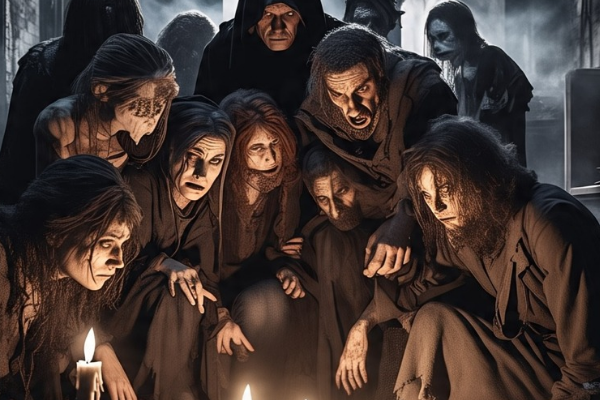Introduction
What Does (Abnormal) Really Mean?
The term abnormal people often conjures images of individuals who defy societal expectations, whether through mental health conditions, unconventional lifestyles, and extraordinary talents. But who gets to define what’s normal? Historically, societies have labeled people as abnormal for everything from left handedness to schizophrenia. In this deep dive, we’ll unravel the complexities of abnormal behavior, challenge stereotypes, or celebrate the unique traits that make humanity so diverse.

Part.1
The Psychology of Abnormal Behavior.
Defining Abnormal Psychology
Abnormal psychology is a branch of psychology that studies unusual patterns of thought, emotion, or behavior. The Diagnostic or Statistical Manual of Mental Disorders categorizes conditions like schizophrenia, bipolar disorder, or OCD but even experts debate where to draw the line between normal and abnormal.
The Role of Culture in Shaping Norms
What’s considered abnormal people in one culture might be celebrated in another. For example:
Hearing voices: In Western medicine, this may signal psychosis. In some Indigenous cultures, it’s seen as a spiritual gift.
Introversion Once pathologized as social dysfunction, introverts are now recognized for their unique strengths
Famous Figures Who Redefined (Abnormal)
Vincent van Gogh His mental health struggles fueled iconic art.
Temple Grandin Autism didn’t stop her from revolutionizing animal science.
Part.2
The Stigma Surrounding Abnormal People.
How Society Marginalizes Differences
From medieval madhouses to modernbday stereotypes, society has often feared those who deviate from norms. Stigma can lead to
Discrimination in workplaces and schools.
Underreporting of mental health issues.
Internalized shame among those labeled abnormal.
Breaking the Cycle of Stereotypes
Media representation Shows like Atypical or Euphoria humanize neurodivergent characters.
Advocacy movements Neurodiversity campaigns reframe differences as strengths.
Part.3
When Abnormal Traits Drive Innovation.
The Link Between Creativity and Eccentricity
Studies show that abnormal traits like ADHD and bipolar disorder correlate with creative thinking. Examples:
Steve Jobs His unconventional mindset built Apple.
Nikola Tesla Eccentric habits led to groundbreaking inventions.
How to Support Abnormal Individuals
Foster inclusive environments at work or school.
Prioritize mental health resources.
Celebrate quirks instead of suppressing them.
Part.4
Redefining Normalcy in the 21st Century.
The Future of Acceptance
As awareness grows, rigid definitions of normal are fading. Movements like body positivity or LGBTQ+ rights prove that diversity enriches society.
Practical Steps for Embracing Differences
Educate yourself about mental health.
Challenge biased language e.g., “crazy,” “psycho”.
Amplify voices of marginalized communities.

Abnormal people
Every society there are individuals who do not quite fit the conventional mold those often labeled as abnormal people. However what does abnormal really mean? Is it a genuine psychological condition and just a biased label society puts on people who behave think and live differently? In many cases abnormal people are not dangerous or wrong they are simply misunderstood. These individuals might dress differently talk in a unique manner display unusual emotions and live by a set of beliefs that do not align with mainstream culture. They may be overly quiet extremely expressive introverted to the point of mystery and so energetic that others find them overwhelming. Some are born with psychological conditions such as autism bipolar disorder, schizophrenia OCD and social anxiety. Others are simply different due to their upbringing trauma personality traits and experiences in life. But instead of trying to understand and support these people society tends to isolate them mock them and even fear them. In classrooms the abnormal student is often bullied or left out in families they are sometimes seen as burdens in workplaces they are labeled difficult and unfit. The world seems to have a blueprint for how a normal person should act and those who deviate from this script are quickly judged. But abnormal people often have rich inner worlds. They may see and feel things more deeply than others have extraordinary creativity and possess a unique way of solving problems. History is full of people who were once labeled abnormal people but turned out to be geniuses Albert Einstein Vincent van Gogh Nikola Teslaand many more. These individuals were criticized in their time but their minds reshaped the world. Still being abnormal in today’s society is not easy. The weight of exclusion judgment and misunderstanding can lead to loneliness and deep emotional pain. Many abnormal people struggle with self worth because they have been told repeatedly that they do not belong. Some retreat into silence hiding their true selves just to survive. Others try to change themselves forcefully, suppressing their natural instincts in order to be accepted. But the cost of that suppression is high mental health issues broken confidence and a constant identity crisis. Not all abnormal people are mentally ill and not all mentally ill people are truly abnormal and this is a blurry line that people often confuse. A person who talks to themselves might be processing thoughts aloud not necessarily psychotic. Someone who dresses in flashy strange clothing may simply be expressing creativity not seeking attention. The real issue is not their behavior but the narrowness of society’s definitions of normal. And unfortunately many abnormal individuals are pressured to conform losing the very traits that make them special. In reality the world needs abnormal people. They are the the artists the dreamers the innovators the rebels who challenge toxic norms the sensitive souls who notice what others ignore. They are often the ones who can deeply connect with nature, animals and emotions. Many abnormal people live in their own worlds often more beautiful or imaginative than the real one. They may write poetry that shakes the soul paint pictures from dreams build machines from scratch and care for others with unmatched empathy. But for these gifts to shine, they need support not shame. They need understanding not diagnosis. The role of families communities and school is critical here. Instead of labeling children as weird and problematic adults should try to understand their behavior. Is the child quiet because they are anxious or because they are simply an observer? Is the teenager aggressive because of a deep unresolved hurt? We must learn to ask the right questions instead of jumping to conclusions. Mental health professionals can help but healing also requires patience kindness and acceptance from peers and loved ones. Abnormal people may not follow typical career paths. They may struggle in structured 9 5 environments and face difficulties with routine tasks but that does not mean they are failures. Many thrive as freelancers musicians artists researchers or spiritual guides. Some might live unconventional lives off the grid in spiritual solitude and away from modern society. Their choices might seem odd to others but who is to decide which way of life is superior? The diversity in human behavior and thought is what makes our world beautiful. If everyone were the same life would be painfully boring. Abnormal people remind us that there are infinite ways to think live and feel. Their existence challenges the status quo and pushes humanity toward broader compassion. We must be careful. Not every behavior is harmless. Some psychological conditions when left untreated can lead to self harm or danger to others. That’s why empathy must go hand in hand with awareness and proper care. Society should invest in mental health resources that are affordable stigma free and culturally sensitive. Media also plays a role in shaping the perception of abnormality. Often movies and dramas depict mentally ill or different people as violent and creepy which only worsens public fear. We need more honest stories narratives that show the inner world of these individuals with empathy truth and respect. When people see these stories they might finally begin to understand. Abnormal people are not wrong. They are not cursed possessed evil and attention seeking. They are human deeply beautifully painfully human. Some have faced unimaginable trauma others were born with brains that process life differently. Some are gentle and poetic, others loud and unpredictable. But each has a voice a story and a need for love. Imagine a world where instead of bullying the shy boy in class we gave him space and respect. Where instead of mocking the girl who talks to herself we tried to understand her world. Imagine workplaces that allow flexibility for neurodivergent individuals. Imagine a family that does not hide their mentally ill member but celebrates their small victories. That world may not exist fully yet but we can take small steps to create it. One kind word. One moment of patience. One effort to listen with out judgment. Abnormal people in many ways reflect the parts of us that society asks us to hide. Their presence is a mirror sometimes uncomfortable but always important. If we learn to embrace them we also learn to embrace the uniqueness within ourselves. After all, what is normal? A moving target defined by culture and opinion. But humanity in all its forms including the abnormal is timeless. And perhaps the most abnormal people among us are the ones holding the deepest truths of what it really means to be alive.

Conclusion
Humanity thrives on diversity. By redefining abnormal people not as outliers but as essential threads in the fabric of society, we unlock collective potential. Let’s build a world where everyone belongs no matter how abnormal they seem. The idea of “abnormal people” crumbles under scrutiny. By embracing neurodiversity, challenging stereotypes, or prioritizing empathy over judgment, we can build a world where everyone belongs no exceptions.
FAQ Section
Q:
How can I help someone labeled as abnormal?
A:
Listen without judgment, advocate for their needs, or educate others to reduce stigma.
Q:
Is “abnormal” ever an appropriate term?
A:
In clinical settings, specific diagnoses e.g., “abnormal psychology” have context, but avoid using it to label people.
Share stories of neurodivergent leaders in your community?
- Read this post
- People with morning walk
